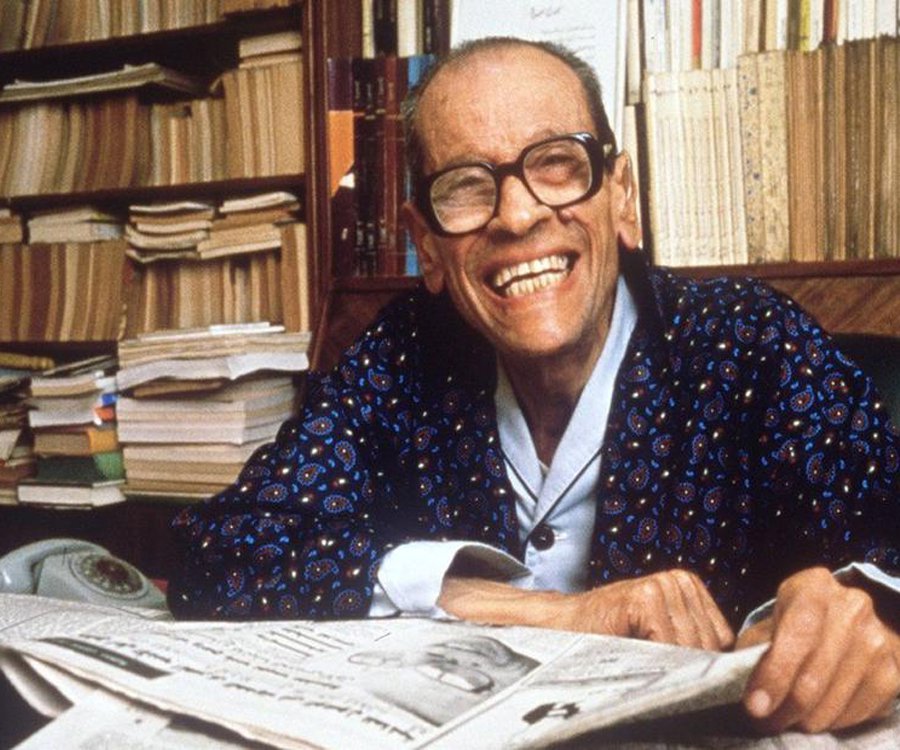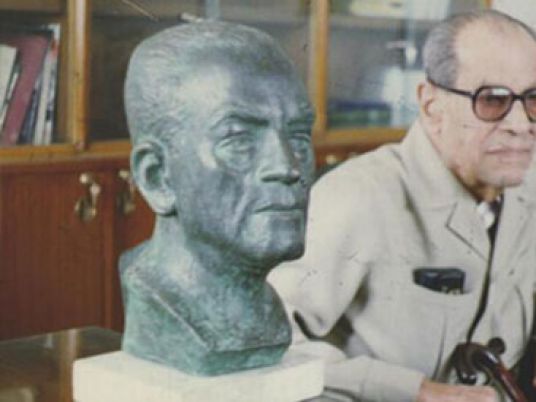"We are a generation without literary masters," is author Mohamed Hafez Ragab’s most famous quote, for which he was equally criticized and venerated throughout his long career.
As Ragab turns 76 today, Dar al-Ein publishing house is publishing his complete works for the first time.
Ragab belongs to the Sixties generation of writers, who gradually broke away from the realism of their predecessors. For years, critics overlooked his works because of their experimental writing style and themes often described as surrealist.
Before retiring to his home city of Alexandria, Ragab found himself entangled in numerous battles on the literary scene. His writing style, which acclaimed literary critic Yehia Hakki compared to “touches of trembling butterflies," was attacked by older literary masters like the iconic Naguib Mahfouz.
In the late 1960s, Mahfouz introduced Ragab’s second novel, The Ball and the Man's Head, at his weekly literary seminar, describing the young author as “a surrealist in the real world”.
"When I first heard these words, I foresaw my destiny,” Ragab tells Al-Masry Al-Youm. “I saw a linenrope and a tree branch waiting for my neck to hang."
"All my contemporaries watched closely the battles I fought to introduce alternative writing styles in Egypt,” says Ragab, holding the first copies of his newly published Complete Works. But these fights only paid off after years of marginalization in the literary world.
Ragab's publisher, Fatima al-Boudy, explains that she did not know of Ragab until recently. "His books are no longer available in bookstores across the country,” she says.
Boudy became familiar with his works through friends and began collecting the few copies she could find. “The more I read his works, the more I felt the urge to publish them.”
"In addition to his inspiring writings, I admired Ragab’s perseverance. This man is a real fighter,” she says.
Ragab is a self-taught writer; he dropped out of school to work for his father as a newspaper boy and lottery ticket seller at the Al-Raml train station in Alexandria. At this time, he began to write and co-founded a literary association for young writers at the age of 15. He published his first book, The Strangers, in 1967, followed by The Ball and the Man's Head in 1968.
“Although Ragab didn’t finish his schooling, he succeeded in becoming a pioneering figure on the literary scene," adds Boudy.
Hakki writes in the introduction of Complete Works that Ragab broke the rules of Arabic short story writing. His use of short, delicate, yet trembling, sentences tells a story by evoking emotions rather than recounting events.
According to Boudy, his writing shook the basis of fiction, which is why he was attacked by writers from earlier generations.



